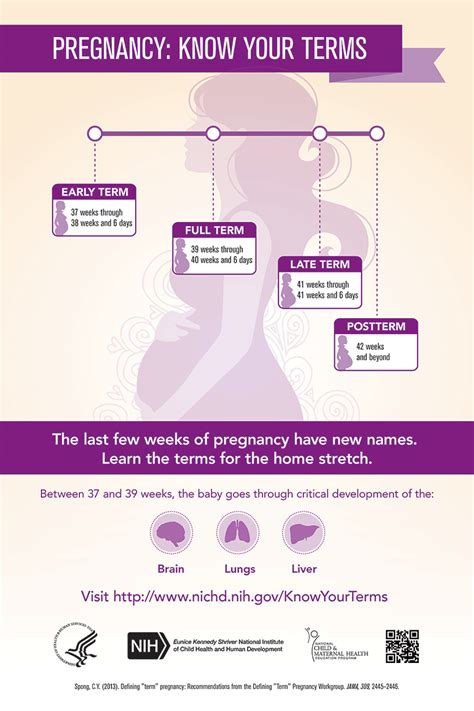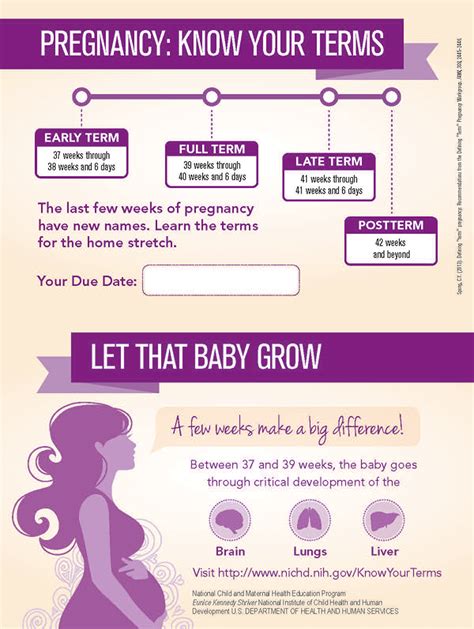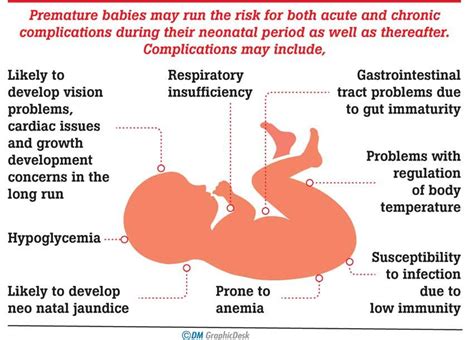Intro
Discover 5 ways to support full term gestation, ensuring a healthy pregnancy and newborn. Learn about prenatal care, nutrition, and lifestyle habits for a successful full-term birth, reducing preterm labor risks and promoting fetal development.
The journey of pregnancy is a remarkable and intricate process that culminates in the birth of a newborn. Full term gestation, typically defined as a pregnancy that has reached 37 weeks to 42 weeks of gestation, is a critical period where the fetus is fully developed and ready for life outside the womb. Understanding the importance of full term gestation and the factors that influence it can provide valuable insights for expectant mothers and healthcare providers alike.
Pregnancy is a complex and highly regulated process, with various physiological changes occurring in the mother's body to support the growth and development of the fetus. The duration of pregnancy is typically divided into three trimesters, each with its unique characteristics and milestones. The first trimester, spanning from week 1 to week 12, is a period of rapid fetal growth and development, during which the major organs and body systems begin to form. The second trimester, from week 13 to week 26, is marked by continued fetal growth and development, as well as significant changes in the mother's body, such as the expansion of the uterus and the increase in blood volume.
The third trimester, which begins at week 27 and ends with birth, is a critical period where the fetus continues to mature and prepare for life outside the womb. During this time, the fetus gains weight, develops fat layers, and its lungs start to produce surfactant, a substance that helps them expand and contract properly after birth. The third trimester is also a time of significant physical and emotional changes for the mother, as she prepares for childbirth and motherhood. Understanding the importance of full term gestation and the factors that influence it can help expectant mothers and healthcare providers work together to ensure the best possible outcomes for both mother and baby.
Understanding Full Term Gestation

Benefits of Full Term Gestation
The benefits of full term gestation are numerous and well-documented. Babies born at full term tend to have better health outcomes, including lower rates of respiratory distress, fewer infections, and reduced risk of neonatal intensive care unit (NICU) admission. Full term gestation also allows for optimal fetal development, including the maturation of the lungs, liver, and other vital organs. Additionally, full term babies tend to have better cognitive and developmental outcomes, with improved performance in school and lower rates of learning disabilities.Factors Influencing Full Term Gestation

Role of Prenatal Care
Prenatal care plays a critical role in promoting full term gestation and reducing the risk of pregnancy complications. Regular prenatal check-ups allow healthcare providers to monitor fetal growth and development, as well as detect any potential complications early on. Prenatal care also provides an opportunity for expectant mothers to receive education and support on healthy lifestyle choices, such as nutrition, exercise, and stress management. Additionally, prenatal care can help identify women at high risk of pregnancy complications, allowing for targeted interventions and management strategies to reduce the risk of preterm birth and other adverse outcomes.Strategies for Promoting Full Term Gestation

Importance of Social Support
Social support plays a critical role in promoting full term gestation and reducing the risk of pregnancy complications. Expectant mothers with strong social support networks tend to have better health outcomes, including lower rates of preterm birth and other adverse outcomes. Social support can come from a variety of sources, including family members, friends, and healthcare providers. Additionally, social support groups and online communities can provide a sense of connection and community for expectant mothers, helping to reduce stress and promote overall well-being.Complications of Preterm Birth

Role of Healthcare Providers
Healthcare providers play a critical role in promoting full term gestation and reducing the risk of pregnancy complications. Regular prenatal check-ups allow healthcare providers to monitor fetal growth and development, as well as detect any potential complications early on. Healthcare providers can also provide education and support on healthy lifestyle choices, such as nutrition, exercise, and stress management. Additionally, healthcare providers can help identify women at high risk of pregnancy complications, allowing for targeted interventions and management strategies to reduce the risk of preterm birth and other adverse outcomes.Future Directions

Conclusion and Recommendations
In conclusion, full term gestation is a critical period in pregnancy that is essential for optimal fetal development and maternal health. Understanding the importance of full term gestation and the factors that influence it can help expectant mothers and healthcare providers work together to promote healthy pregnancy outcomes. Based on the evidence, we recommend that expectant mothers prioritize healthy lifestyle choices, including a balanced diet, regular exercise, and stress management. Additionally, we recommend that healthcare providers prioritize regular prenatal check-ups, education, and support to promote full term gestation and reduce the risk of pregnancy complications.What is full term gestation?
+Full term gestation refers to a pregnancy that has reached 37 weeks to 42 weeks of gestation. During this period, the fetus is fully developed and ready for life outside the womb.
What are the benefits of full term gestation?
+The benefits of full term gestation include better health outcomes for the baby, including lower rates of respiratory distress and other health problems. Full term gestation also allows for optimal fetal development and reduces the risk of pregnancy complications for the mother.
How can I promote full term gestation?
+To promote full term gestation, prioritize healthy lifestyle choices, including a balanced diet, regular exercise, and stress management. Additionally, attend regular prenatal check-ups and follow the recommendations of your healthcare provider.
What are the complications of preterm birth?
+Preterm birth can have serious complications for both mother and baby, including respiratory distress, infections, and other health problems. Preterm birth can also increase the risk of pregnancy complications for the mother, including gestational diabetes and hypertension.
How can I reduce the risk of preterm birth?
+To reduce the risk of preterm birth, prioritize healthy lifestyle choices, including a balanced diet, regular exercise, and stress management. Additionally, attend regular prenatal check-ups and follow the recommendations of your healthcare provider.
We hope this article has provided valuable insights into the importance of full term gestation and the factors that influence it. By working together to promote healthy pregnancy outcomes, we can help ensure the best possible outcomes for both mother and baby. If you have any questions or comments, please feel free to share them below. Additionally, we encourage you to share this article with others who may benefit from this information. Together, we can promote healthy pregnancy outcomes and support the well-being of mothers and babies everywhere.
